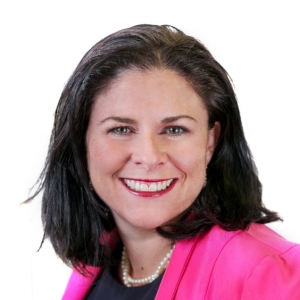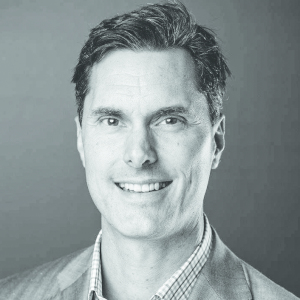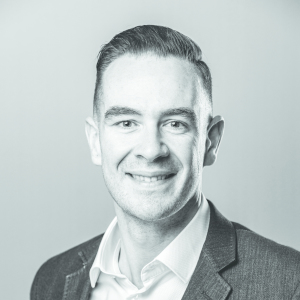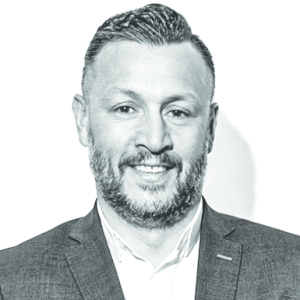
Tas Bindi speaks to leading socially conscious brokers about how they’re embracing the opportunities and benefits of charitable giving.
Establishing trust with borrowers is a vital part of any broker’s work. Being able to demonstrate a strong social conscience by giving generously is a great way to establish those credentials.
There are self-evident intrinsic community benefits that come from donating e or resources to a worthy cause. However, especially in a post-Hayne environment, philanthropic altruism can also unlock a number of practical advantages for businesses that choose to give.
For instance, many potential clients, particularly among the Gen X and Gen Y cohorts, have strong personal convictions on social and environmental causes. These potential customers prefer to do business with ethical companies that embrace corporate social responsibilities.
Nielsen’s Global Corporate Sustainability Report found that 66 percent of consumers globally are willing to spend more on a product if it comes from a brand they perceive as supporting sustainability, with the figure rising to 73 percent among Millennials.
Further, a report by the Responsible Investment Association Australasia (RIAA), titled From values to riches: Charting consumer attitudes and demand for responsible investing in Australia, indicates that Australians are increasingly demanding that financial markets play a socially constructive role in the economy. They were found to be particularly interested in renewable energy, healthcare, medical products and sustainable practices.
“People are expecting their investments to support the emergence of tomorrow’s industries, to remove support from companies that are doing social harm, and to create the assets and infrastructure that we will need in Australia late into this century,” the RIAA report states.
Rising consumer demand for lenders to create economic value in a way that aligns with society’s interests, especially after the financial services royal commission, is prompting lenders to reflect on the moral significance of their actions.
By giving to charities and non-profits, brokers can also benefit by strengthening their brand, attracting socially aware clients, and establishing a strong point of differentiation in a crowded and competitive marketplace.
We showcase some of the good work that leading brokers have been undertaking to support a good cause.
|
Case study 1
Nicole Cannon, founder and director, Pink Finance Going in to bat for breast cancer patients Ten-year-old North Sydney-based brokerage Pink Finance, which won the award for Social and Community Service Program of the Year at The Adviser’s Australian Broking Awards 2019, has been involved with the McGrath Foundation, a non-profit that raises money to place breast care nurses in communities across Australia. Nicole Cannon, founder and director at Pink Finance, says the brokerage donates $12,000 plus GST per year, surpassing $150,000 over the past 10 years. She also volunteers for the foundation, waving pins and collecting coins at cricket matches, as well as assisting with the organisation of high teas. A self-described “cricket fanatic”, Ms Cannon says she first wanted to connect with the McGrath Foundation after following the story of Jane McGrath (the wife of former Australian Test player Glenn McGrath) who passed away following a battle with breast cancer in 2008. “I read their books, and I felt very connected to that story. When I thought about the whole Pink Finance idea, I researched about what [the McGrath Foundation] is about. Most people think they’re about research, and I did too, but then I found out about [the work the foundation does supporting] nurses and how they give support to patients and those around them,” she says. Ms Cannon adds that she personally connects with this aspect of the cause because she grew up with an unwell mother. “I had a huge sense of connection to that because my mum – who is still alive today – was in and out of hospital my entire life.” She continues: “The community support that we have received from the little town where I grew up was just so beautiful. Our neighbours helped Dad when Mum was in hospital. They provided us with meals, and taxied me around to all my after-school activities so I could have a normal childhood. That gave me a real sense of value for the community.” Ms Cannon says she was certain from the start that she wanted to be involved with the McGrath Foundation, noting the importance of finding the right cause. “I didn’t want to go to any other foundation, because I felt connected to them on such a high level. It’s about finding a cause that you connect with because then it will become a natural product of you, as opposed to an add-on,” she explains. While Ms Cannon’s giving is primarily aimed at helping a worthy cause, there have been unintended business benefits as a result. For example, for socially conscious clients, the connection with the McGrath Foundation demonstrates that she is dedicated to the community and is not just concerned about profit. Additionally, most of Pink Finance’s clients are women. Supporting a breast cancer-related charity has helped the brokerage to focus on women in finance as a niche market. “A lot of my real estate referral partners say, ‘She’s really good at what she does, but she also does this community element [and] she donates to the McGrath Foundation.’ They find that it’s a lot softer sell when they’re recommending me because of the extra charity component,” Ms Cannon says. |
|
Case study 2
PJ Patterson, founder and CEO, Keystone Financial Making a world of difference The United Nations’ 17 Sustainable Development Goals aim to address a range of social and environmental issues around the world, including poverty, hunger, education, gender inequality and access to clean drinking water. PJ Patterson, the founder and CEO of St Leonards-based Keystone Financial, believes business people have a vital role to play in helping the world meet these objectives through the formation of social enterprises. “The platform that I’ve chosen to do that through is called B1G1. It’s a global social enterprise that was founded by Masami Sato and her husband, Paul Dunn, who are based out of Singapore. They developed a platform where they have listed over 900 different projects around the world that you can support. Each of those projects are aligned to one or more of the UN’s Sustainable Development Goals,” he says. “Because I’m in the finance industry, I firmly believe that if we can elevate the economic capabilities of people in Third World nations, give them the means by which they can produce goods or services, empower them economically, they can then build sustainable communities,” Mr Patterson says. He continues: “My belief is that all of us living in Australia have won the human lottery. We have nothing to complain about when we compare [Australia] to other places in the world. We can do something for people in these other places in the world that don’t have the same advantages and opportunities we do.” According to the CEO of Keystone Financial, who took home the award for Best Community Engagement Program at The Adviser’s Better Business Awards NSW this year, this view particularly resonates with Gen Y and Gen Z clientele. “People are looking for businesses with a social conscience, and I wanted to make sure that I had one. So, I think the benefit for me is simply that it is another level of engagement with my clients just to have a conversation about the good that I’m attempting to do in the world,” Mr Patterson says. “I made a point of telling the story to my clients, not to brag or boast. It was more along the lines of saying: ‘I want to do these things, and it is because of you, my clients supporting me and my business, that I’m able to. So, thank you for supporting my business’.” Mr Patterson says his involvement with B1G1 has had additional benefits around staff recruitment. One recent example came during a job interview, when he gave a prospective employee the opportunity to ask questions about his business. “She asked: ‘What’s your business doing to make a difference in the world?’ This was from a recent college graduate. I told her the story of B1G1, and she was completely blown away,” he adds. “There’s such a disparity in the world around economic empowerment. This encourages me because I know that I can do something about it.” |
|
Case study 3
Tim Reynolds, founder and director, Accession Finance Pillar of the community Accession Finance, based in Williamstown, Melbourne, has been involved with community initiatives since Tim Reynolds and his family moved to the neighbourhood. “My wife always wanted to live in Williamstown. She said it felt like a small country town but with close proximity to the city. We moved here to be a part of a community, and with all of the benefits of that, it feels great to give back,” says Mr Reynolds, who founded Accession Finance about five years ago. “I also learned from my time working at the Good Guys the benefits of being marketed as a ‘local hero’... Participating in community events has helped increase our presence and put a face behind the name of Accession Finance.” He says the family-run brokerage’s first involvement with the local community was through sharing family adventures with local kids via The Melbourne Kid. “It really helped the local community to relate to us and see who we were as people – just a mum and dad with two kids living in Melbourne that happen to run a mortgage broking business,” he says. Accession Finance, which won the award for Best Community Engagement Program at The Adviser’s Better Business Awards Victoria this year, was also previously gold sponsor of an event at St Mary’s School, which is one of the oldest Catholic schools in Victoria, operating continuously since May 1842. “Some parents of the school have come to me to sort out their finances, so it was a nice way to be able to give back to this community which has been so supportive of our business,” Mr Reynolds says. The brokerage has additionally supported Share the Dignity, a non-profit organisation providing homeless and at-risk women nationally with sanitary products, as well as supporting the Williamstown Soccer Club Ladies Day. According to Mr Reynolds, customers want to do business with professionals who are not only good at their jobs but are also good people in general. “Our work in the community has helped us build that personal brand where clients look for us, not the other way around,” he says. “I hope that our existing clients feel a sense of pride and community when they see our banner up at the fete, or our logo on a community website.” Mr Reynolds says that as a broking business that helps home buyers, it would make sense for Accession Finance to help homeless people in Melbourne as its next cause. “We think that would be in line with our goals as a business, and it’s something we’ll be working towards in the next few years,” he adds. The finance broker admits that getting involved with community initiatives can be difficult for brokers, given the time investment required, but he says that it is “so rewarding”. “Find something that you’re passionate about, and find out how you can help and get involved,” Mr Reynolds says. |
|
Case study 4
Stephen O’Reilly-Nugent, founder, Brokers for Change (B4C) Impact in the making An exciting new initiative, Brokers for Change (B4C), aims to harness the power of what brokers do to give back to the community. The new brokerage service launched in March this year, with the goal of helping end homelessness in Australia. As a starting point, B4C has committed to donate 20 per cent of commissions to StreetSmart, a grassroots charity organisation that has been battling to eradicate homelessness in Australia since 2003. Stephen O’Reilly-Nugent, Loan Market broker and founder of B4C, says it makes sense for a brokerage to assist Australians without homes by using a proportion of the profits generated from mortgage deals of individuals who have purchasing power in housing markets to invest in properties. “I had a conversation in 2013 with our head of sales and some brokers. We had the idea that if we could connect with organisations who are interested in homelessness as a cause, we could provide a service where a share of the commissions we get paid would go to a charity instead of the referrer,” he says. Mr O’Reilly-Nugent credits the work of Loan Market executive chair Sam White with providing the inspiration for establishing B4C, noting Mr White’s involvement with charities and initiatives aimed at eradicating homelessness and poverty, such as OzHarvest and the Vinnies CEO Sleepout. “Due to the fact that we, as mortgage brokers, are involved in the housing industry, it makes sense to do something about homelessness,” he says. “If you got a mortgage and you knew that a little bit of the mortgage repayment you pay every month, instead of it going into a profit margin, is being given to a charity that does something to help homeless people. How good would that feel?” Mr O’Reilly-Nugent stresses that B4C is a social enterprise rather than a charity. The logistics of distributing the funds to beneficiaries is managed by StreetSmart’s platform, which allows funds to be targeted towards the suburbs where clients live. “As mortgage brokers, we can effectively segment our client base by postcode or region. For example, if all of our clients were centralised around Richmond, we can provide that information to StreetSmart and make sure a share of the commissions are going to organisations that support homelessness in that local area,” he explains. Currently, five Melbourne-based brokers are involved with B4C, with Mr O’Reilly-Nugent looking to increase awareness to attract more brokers and home buyers. While homelessness is the cause B4C will focus on in the near term, the Loan Market broker envisions a future in which clients are able to choose the cause that the brokerage’s donations go towards. “If Brokers for Change could get itself to the point where its impact becomes really broad and helps, for example, cancer sufferers, that would be really exciting. One of my initial thoughts was that we would give people the choice to tell us what causes are most important to them,” Mr O’Reilly-Nugent says. “I’m confident that once people understand and see what we’re doing and feel connected to the impact we’re making, this business can really lead the industry.” |
 Login
Login














JOIN THE DISCUSSION